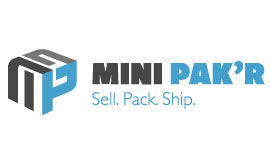Viral Marketing: How Meme Culture is Making Sales
We live in an age dominated by meme culture. New pictures, videos, and ideas are gaining popularity and spreading like wildfire in a matter of days. For anyone involved in advertising, this might seem like a dream come true. It’s exactly what anyone wants for their product – instant, cheap, large-scale marketing campaigns that essentially run themselves. However, actually getting a meme to launch – especially if your end goal is to sell a product – can be extremely difficult.
The age of the ad is over. The age of the meme has come.
By definition, a meme (pronounced “meem”) is “an idea, behavior, or style that spreads from person to person within a culture.” While things that fit that definition have been around for centuries, only recently has the “Internet meme” become prevalent in our society.
Anything from videos to pictures to the ever-popular image macro can catch fire and spread worldwide in a matter of days. Of course, this is a dream for anyone involved with advertising, and many have tried to capitalize on the viral nature of the trend, to varying degrees of success. It’s hard not to see the advantages; a viral ad campaign is cheap, simple, and, if it catches on, essentially spreads itself. So it follows that you, dear blog reader, may be asking “How can I get in on that action?” The answer is not simple, for the meme be a fickle beast.
The Diabeetus Effect
One of the largest issues with trying to harness the power of viral marketing is its ever-changing nature. It’s almost impossible to predict what will take off on social media and what won’t.
Indeed, often the things that spread this way aren’t intended to be. A fantastic example of this is the rise of Wilford Brimley. It started out as an innocent commercial for a medical supplies company, featuring a spokesman sporting a hefty moustache. This is the original ad from Liberty Medical:
Notice, if you will, that this video has nearly one million views — far more than any medical supply company advert would normally have. This is due to the fact that Brimley’s unique appearance and interesting pronunciation of the word “diabetes” were absolutely hilarious to anyone watching the commercial.
Once “diabeetus” gained enough notoriety, you could say that one word to most people and be fairly confident they’d know exactly what you were talking about. Eventually it snowballed and climaxed with this magnificence:
The Diabeetus Remix is a perfect example of the idea at the core of meme culture — humor. The idea is that memes are funny, digestible, and light. If a company can emulate this in a way that doesn’t seem forced, they can gain an extremely efficient and powerful advertising tool.
Memic Misdemeanors
On the subject of forced humor, it’s important to note that when attempting to utilize memes for advertising, one has to be very careful to understand the meaning behind the meme they’re using. The path to successful viral campaigns is paved with the corpses of companies that leapt blindly into memeing without doing their research. Observe, if you will, this rather well-known atrocity:
 Image source: The Dodo (via BuzzFeed)
Image source: The Dodo (via BuzzFeed)Whoever was in charge of marketing on this one definitely didn’t check for certain connotations associated with their hashtags. If you make an error like this, you’d best believe it’s going to go viral, but in the complete opposite way you intend. You have been warned.
When memeing, it’s also extremely easy to seem like an out-of-touch person trying to force-appeal to a younger generation. Memes are transient by nature, and if you use one that is out of date, or use it incorrectly, you might be chastised for trying too hard to seem like a super cool teenager. There’s an entire section of reddit.com dedicated to mocking blunders like this, and it’s horribly hilarious.

Don’t become this. Incidentally, this is the example that gave the Reddit section its name. | Image source: Imgur
Laws of the Land
So with all this in mind, here are some steps you can take to ensure that your marketing campaign doesn’t end up on /r/fellowkids:
Know your memes.
There is a website for this (aptly called Know Your Meme). Use it. It will tell you everything you need to know regarding the history and usage of your chosen meme. This essential tool to prevent the aforementioned blunders, most of which could have been prevented had the creators simply done their research before lunging blindly into memeworld.
Understand the context.
An important thing to realize is that whether you use a meme correctly or not, the context you place it in will determine the implication. Take the above National Popcorn Day tweet for example. On its own, it’s just an example of a meme used incorrectly. However, when you combine it with their website’s cute animal-based theme and purpose, you get something abominable.
Lots of memes have origins and meanings that are completely inappropriate for use on an official business’ website. It’s far better to find out beforehand through research than through a Twitter free-for-all at your expense.
Use young people to communicate with young people (especially if we’re talking about millennials, America’s largest generation and one that represents an ever-increasing market share).
The biggest reason the younger generations take offense to companies using their humor to advertise to them is that if not done properly, it seems extremely disingenuous. The best way to get a grasp on the things they find interesting and worth sharing is to actually talk to them and find out firsthand.
If you’re selling to youth, hire someone their age to help write advertising. If you take the time to learn and understand the ideas you’re trying to use, the odds are good that you’ll be successful, and vice-versa. If done right, advertising magnificence can be achieved.

Well done, Domino’s. Well done. | Image source: Domino’s Pizza UK
If you keep all this in mind, there’s no reason your campaign shouldn’t have at least a decent shot of going viral. Memery is a high-risk high-reward endeavor, and carries the chance of making you look dated and out-of-touch if done incorrectly.
Despite this, as an advertiser or business owner, there’s no reason you should shy away from capitalizing on this massive trend stemming from viral marketing simply because you’re not a millennial. Just remember — with great memes come great responsibility.

